If you own (and adore) a pet cat, you know the value of maintaining their well-being and activity levels. But you might have trouble finding ways to feed your feline friend a nutritious meal.
And if you're a fan of fungi, you might wonder, are mushrooms safe for cats? Indeed, it is. Our cats can benefit from mushrooms (including medicinal mushrooms) in the same way we can, especially our older pets or cats with health issues.
While store-bought mushrooms for cats are safe for consumption, your purring pal may become sick if they consume wild mushrooms. Furthermore, feeding your cat mushrooms raises the question of whether or not it's a smart idea because it could tempt them to consume poisonous wild mushrooms.
Read on to learn whether the link between cats and mushrooms and what you should know before feeding your kitty some caps.
Let’s begin with how are mushrooms good for cats.
Benefits Of Mushrooms For Cats
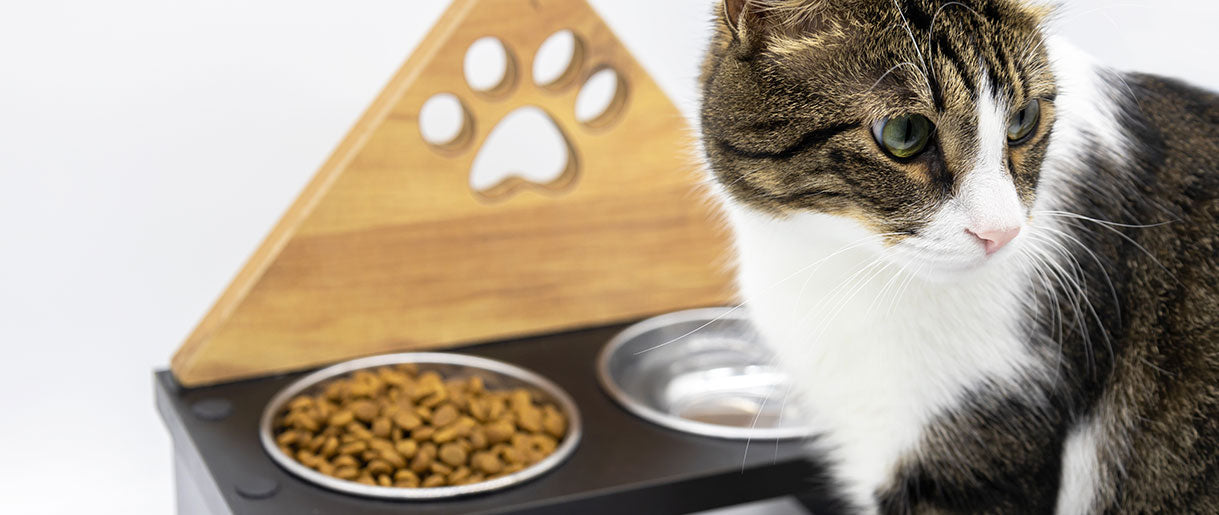
Medicinal mushrooms have been used for ages in Chinese and Eastern medicine for their therapeutic qualities. The benefits of these nutrient-rich mushroom species have also found their way into contemporary, all-natural supplements that are rising in popularity. But have you ever considered can cats eat mushrooms?
Similar to the health-boosting effects of medicinal mushrooms on humans, cats can also benefit from several of their benefits. Also, they can be a natural and safe method to add bioactive substances to their daily diet while promoting a balanced inflammatory response and immune-supporting properties.
These are 4 benefits of mushrooms for cats' health.
1. Rich in nutrients
Mushrooms contain abundant amino acids, vitamin B, selenium, and antioxidants. The heart, brain, and eyes of cats are all reliant on the amino acids that are present in their food.
2. Boosts the immune system
The immune system-modulating response and virus-fighting capacity of cats may both benefit from mushrooms. This is due to beta-glucans in mushrooms, soluble fibers that prevent infection.
Due to these characteristics, mushrooms may be able to aid in the treatment of different illnesses, including FIV. And as the saying goes, prevention is always better than cure. Therefore, the best approach to keep your cat healthy and safe is to feed them a diet rich in substances that can help prevent the disease.
3. Provides support during cancer treatment
Some mushrooms, including Maitake and Reishi, contain properties that help in cancer prevention. Certain mushrooms may also decrease the growth of cancerous tumors and assist in liver protection during chemotherapy.
4. Helps with inflammation
Fatty acids and vitamins, among other elements with anti-inflammatory qualities, are found in mushrooms. These vitamins and minerals can aid in treating chronic illnesses such as inflammatory bowel disease, bronchitis, and arthritis.
6 Best Medicinal Mushrooms For Cat
Here are the six best medicinal mushrooms you can give your pet.
1. Reishi (Ganoderma lucidum)
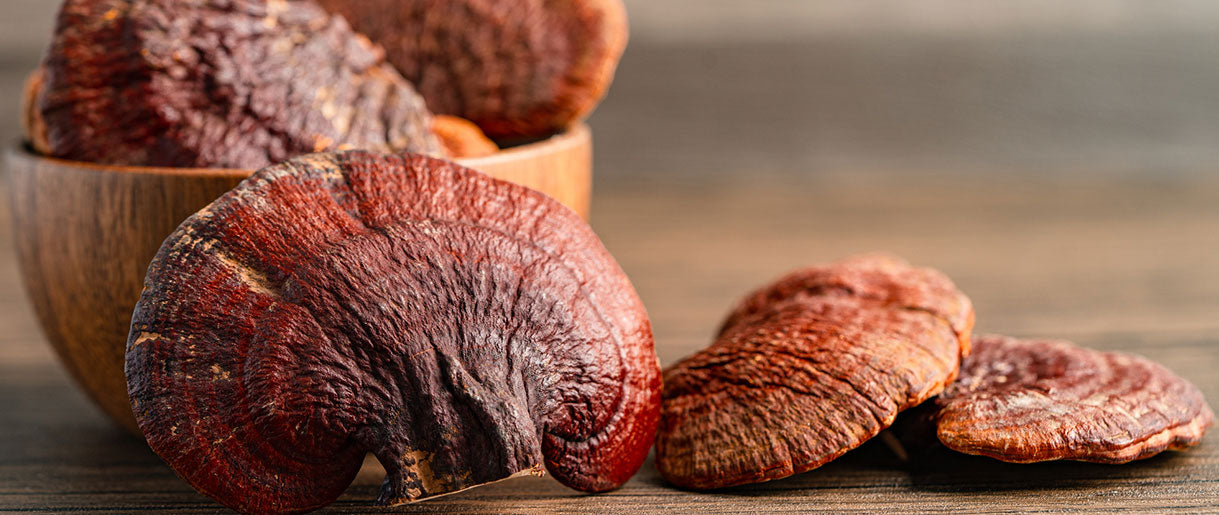
Reishi mushrooms are also known as the "Mushroom of Immortality." They have been utilized by shamans and healers worldwide for millennia and are a staple of traditional Chinese medicine for pets.
These mushrooms assist in sustaining a healthy inflammatory response and immune system support. Also, they help maintain healthy circulation, energy levels, and respiratory function.
Many clinical research supports the remarkable beneficial properties of Reishi mushrooms (1).
2. Lion's Mane (Hericium erinaceus)
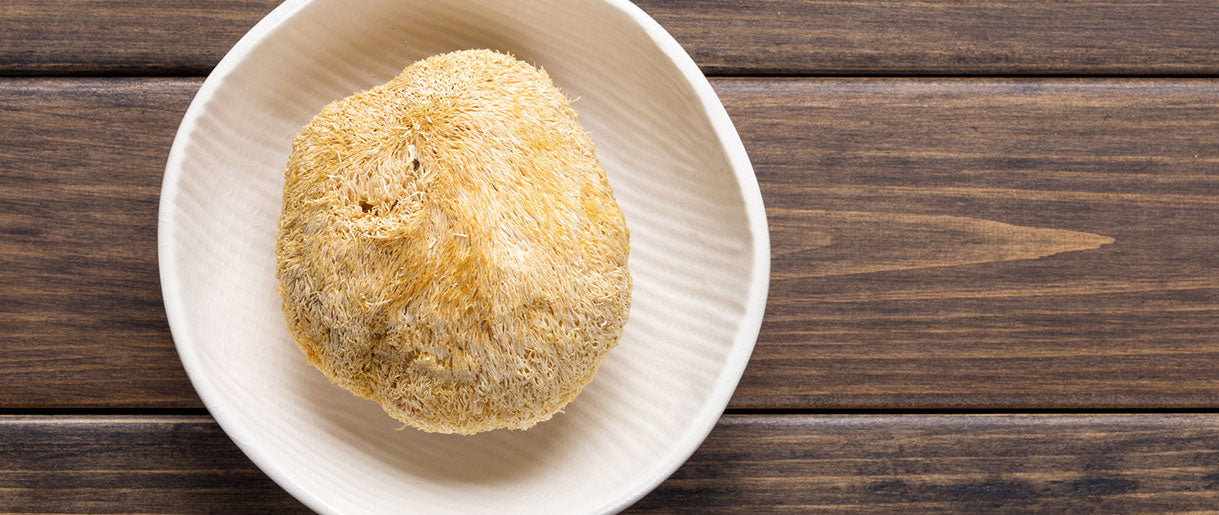
The name "Lion's Mane" comes from the mushrooms' distinctive look. Other frequent names for mushrooms are monkey head, sheep's head bearded tooth, and pom pom mushroom.
These beneficial mushrooms promote gastrointestinal health. In addition, Lion's mane mushrooms, known to boost cognitive function, can benefit elderly pets.
3. Maitake (Grifola frondosa)

In Japanese, Maitake means "Dancing Mushroom." These powerful mushrooms promote healthy cellular function. Also, they help to support a healthy liver, the immune system, and blood sugar levels that are within normal levels.
Many ages and kinds of cats can benefit from Maitake mushrooms in maintaining their general health. They may also help support the health of cats with liver issues and diabetes.
4. Cordyceps militaris

Caterpillar mushrooms are another name for the Himalayan guns Cordyceps. Why? Because caterpillars are where they grow!
This traditional mushroom maintains normal blood pressure, supports good liver and kidney function, and supports the immunological system. Cordyceps are also known to improve stamina and endurance.
5. Chaga (Inonotus obliquus)

Chaga mushroom is referred to as a "Gift from God." These healthy mushrooms are rich in enzymes, B vitamins, minerals, and antioxidants. They also promote immune system performance and healthy cellular activity.
For animals suffering from autoimmune disorders and allergies, Chaga mushrooms may be beneficial. Also, they can help pets with inflammatory bowel disease and diabetes maintains their normal, healthy function.
6. Turkey tail (Trametes versicolor)
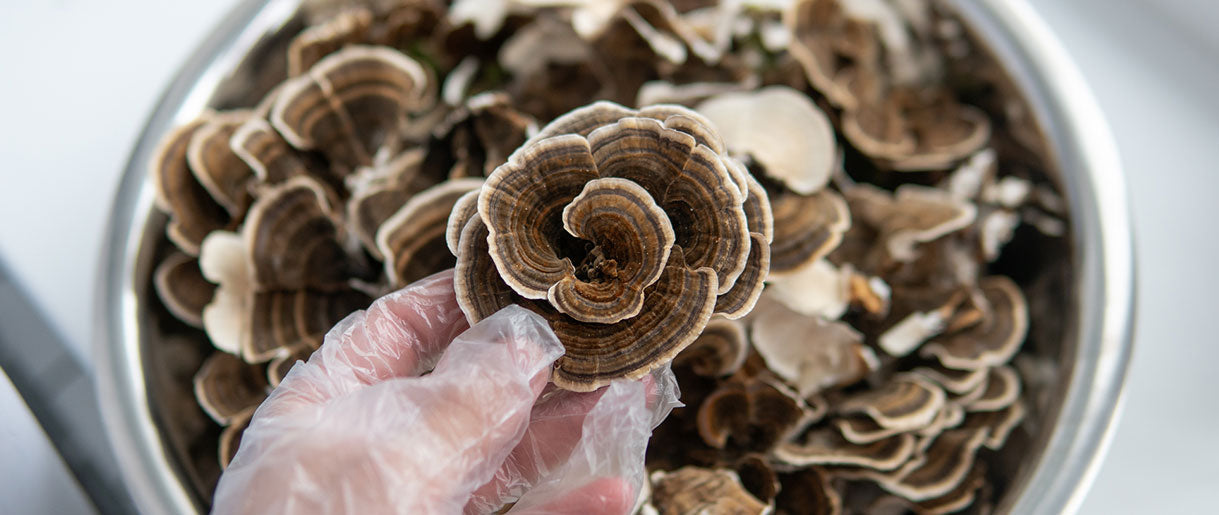
The name "Turkey tail" comes from the multicolored patterns on the mushroom, similar to the rings on a wild Turkey's tail. The mushroom can promote healthy cellular activity and the immune system.
In a recent study, the University of Penn State's Veterinary School found that Turkey tail (2) mushrooms can help pets with hemangiosarcoma. Turkey Tail mushrooms also include nutrients that assist a healthy digestive system and urinary tract.
Potential Risks Of Feeding Mushrooms To Cats

The downside of giving your cat mushrooms is that they can develop a preference for the fungi. Keeping them as an indoor-only pet won't be a problem, but if you let them outside, they might consume a dangerous wild fungus.
So, which are mushrooms bad for cats?
Cats should avoid many common wild mushrooms. Although most mushrooms are not fatal to cats, they can nevertheless result in symptoms that necessitate a trip to the veterinarian. Toxins in some mushroom varieties can seriously harm a cat's liver and kidneys. Notable poisonous wild mushrooms are:
- Fly agaric (Amanita muscaria)
- Death cap (Amanita phalloides)
- Autumn skullcap (Galerina marginata)
- Death angel (Amanita ocreata)
- Sickener (Russula emetica)
- Jackson's slender amanita (Amanita jacksonii)
- Deadly webcap (Cortinarius rubellus)
Contact your vet if you think your feline friend has ingested these mushrooms.
How To Introduce Mushrooms To Your Cat's Diet?
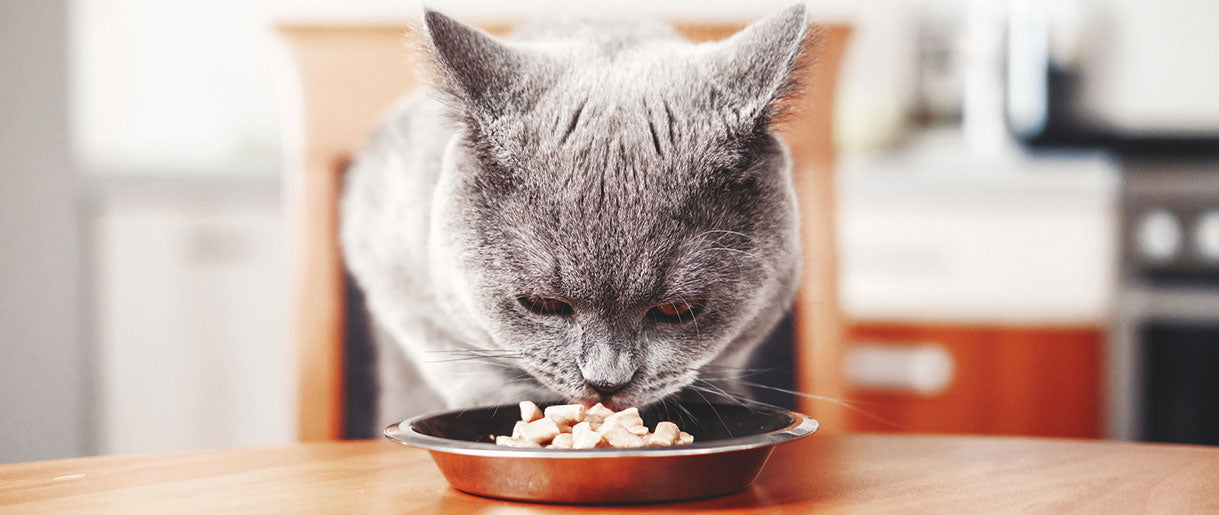
Given the medicinal mushroom's many health advantages, It is simple to understand why these little beauties have been utilized in medicine for ages due to their potent properties.
Cats' more delicate tummies necessitate a different cooking technique. When preparing mushrooms for your kitty friend, be sure to:
- Completely clean the mushrooms.
- Boil them without seasoning in water.
- Wait until they are cool.
- Then, chop them into small, palatable pieces.
Please be careful to give dogs and cats only safe and nutritious mushrooms. Never give pets raw wild mushrooms since they are poisonous to animals and difficult to digest.
By adding a high-quality mushroom supplement to their diet, you may introduce your pet to mushrooms most safely and conveniently as possible. Shiitake, Lion's Mane, Cordyceps, Reishi, and Maitake mushroom supplement blends, made from organic, holistic ingredients, can assist in delivering vital minerals and nutrients.
Mushrooms For Cats
FAQs About Mushrooms For Cats
What To Look For In A Medicinal Mushroom Supplement For Your Cat?
The best medicinal mushroom supplement for your pet will be USDA organic, veterinarian-approved, USA Grown, and Non-GMO.
Purchase supplements produced from fungi that are grown under regulated conditions. This improves the bioactive chemicals and mushroom development cycle, both of which are essential for your cat's health.
Can Cats Eat Raw Mushrooms?
Cats can consume raw mushrooms with no problems. However, it is better to give them cooked mushrooms because cats have a more challenging time digesting raw mushrooms. Furthermore, raw mushrooms might have come into contact with pollutants, dairy products, or raw meat that could make your pet sick.
Do Mushrooms For Cats Can Cause Diarrhea?
While most mushrooms are safe for cats, wild mushrooms can cause diarrhea, vomiting, and lethargy. Contact the vet if you think your cat has ingested poisonous mushrooms and has diarrhea.
Key Takeaways
Reishi, Lion’s mane, Maitake, Cordyceps, Turkey tail, and Chaga are the best mushrooms for cats. This help strengthens the immune system, fight cancer and improve overall health. Supplement your cat’s diet with mushrooms to help them get the incredible benefits of the fungi.
References
- Probing Lingzhi or Reishi medicinal mushroom Ganoderma lucidum (higher Basidiomycetes): a bitter mushroom with amazing health benefits, (1)https://pubmed.ncbi.nlm.nih.gov/23557365/
- Compound Derived From a Mushroom Lengthens Survival Time in Dogs With Cancer, Penn Vet Study Finds, (2)https://penntoday.upenn.edu/news/compound-derived-mushroom-lengthens-survival-time-dogs-cancer-penn-vet-study-finds



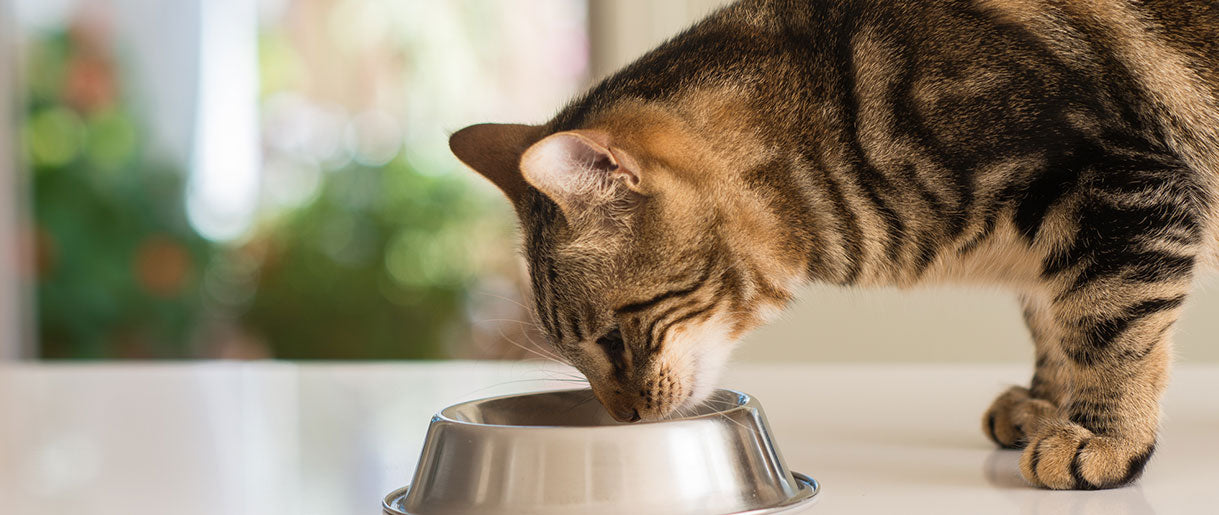





Let Us Know Your Comments